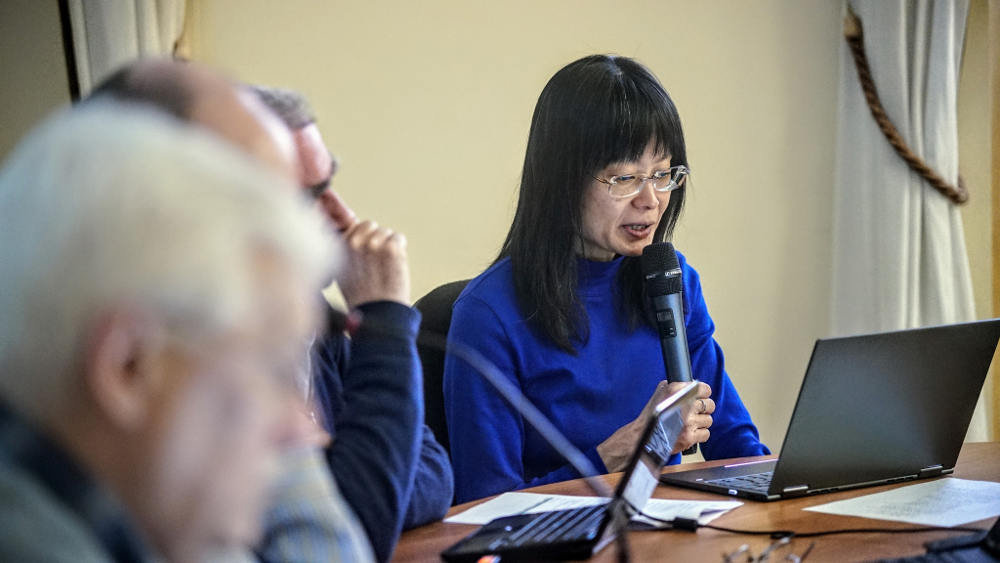
Professor Christina Kheng from Singapore teaches pastoral leadership at the East Asian Pastoral Institute in Manila. She is among the lay people named by Pope Francis to work in the Methodological Commission in the secretariat of the two-year synodal process. In this interview with AsiaNews, Prof. Kheng shares her views on the Church initiative.
What role does the Methodological Commission play in the synod?
The Methodological Commission is called to accompany the synodal process both in the local Churches and in the synodal assembly. We help translate the theology of synodality into the concrete life of communities, welcoming the voice of the Spirit and listening to one another. Our first task is to contribute to the drafting of the Vademecum published at the beginning of the journey. Some who read it told us that iIt is a document with a different tone, very open to dialogue and flexible. It doesn’t say: Do this, but it encourages creativity. Here, I believe this is our task.
You are a teacher of “pastoral leadership,” What does that mean?
Live your ministry in a way that is both effective and rooted in the gospel. Learning to manage operations and organizations today requires an interdisciplinary approach, which holds together the Catholic faith and the secular approach of the sciences on management.
What difficulties are encountered in this challenge?
Often today those who lead an organization in the Church end up adopting the most common model in companies. But this is wrong because it often contradicts the vision of the Gospel: Our gaze on man is not based only on the here and now, it is also spiritual. It asks us to look at the person as a mystery and not just as the workforce in a gear. Pastoral workers are often very spiritual people, they pray deeply, but when they find themselves leading their own organization it is as if they forget the faith and the gospel, using only the business model of management. We must learn to integrate both aspects. And when we do, we will also have something to pass on to lay managers. Because today’s paradox is that many companies talk about social responsibility.
Can the path on synodality be a school for this?
Absolutely. The fact that it aims to involve those on the margins, the desire to converge by including everyone’s voice is something important. In all societies today we see polarizations growing, we look at each other as enemies, there is less tolerance for those who have different visions. The synodal process can do a lot to elaborate a model that holds together leadership and dialogue, a collaborative way of carrying out one’s mission.
What does the synodal journey say to the Churches of Asia in particular?
The Churches of Asia must improve their internal dialogue. For cultural reasons — but sometimes also because of a very traditional way of living the Church — there is little co-responsibility of the laity. Even if they go to Mass much more than in Europe, many lay people in Asia think that being Catholics stops there, waiting for indications from pastors on what they should do. This needs to change.
More collaboration is needed. But the clergy and religious in Asia must also change, helping everyone to make their voices heard. It will be important that ordinary Christians are also present at the continental meeting towards the Synod, not only bishops, priests, religious and lay people with an assigned role. It will be important that there is room for those who come from the most forgotten areas, for the poor, for the young.
In Asia, Christians are a small minority almost everywhere. Will the listening to which the pope calls also involve men and women of other religions?
Of course. Although technically the synodal path is a path of listening to the people of God, discerning means listening to all the voices in society. We cannot exclude the poor, the marginalized, other religions, even the voice of creation that cries out today. The sensum fidei of the people of God comes from here: It is not saying what I think, but listening to the Word of God and the world around us to read the signs of the times.
Asia is living this path while it is still deeply marked by the pandemic.
In many countries the celebrations of Masses are still online. I myself was only able to participate in Rome after so many months. Of course, an online Mass is better than nothing, but we must multiply our efforts so that people can return to gather together, even when this may require the effort of complex procedures to follow. Furthermore, the pandemic has deeply affected religiosity, it has raised questions about the meaning of life. If the religious community does not help to give answers, many will lose interest or will look for other ways.
Where do you dream of finding the Churches of Asia at the end of this Synod?
I dream of a synodal Church, more alive in its missionary nature. Many of our nations today are growing economically, very quickly but without fairness, destroying the environment, with so many people losing their values, with abandoned young people. The Church of Asia cannot just be frightened by all this, stop at the etiquette of the persecuted community. He must find the way for a dialogue within these societies by living his mission. And I am convinced that co-responsibility, by shortening the distance between hierarchies and laity, can help a lot in this.
Source: Licas Philippines
0 Comments